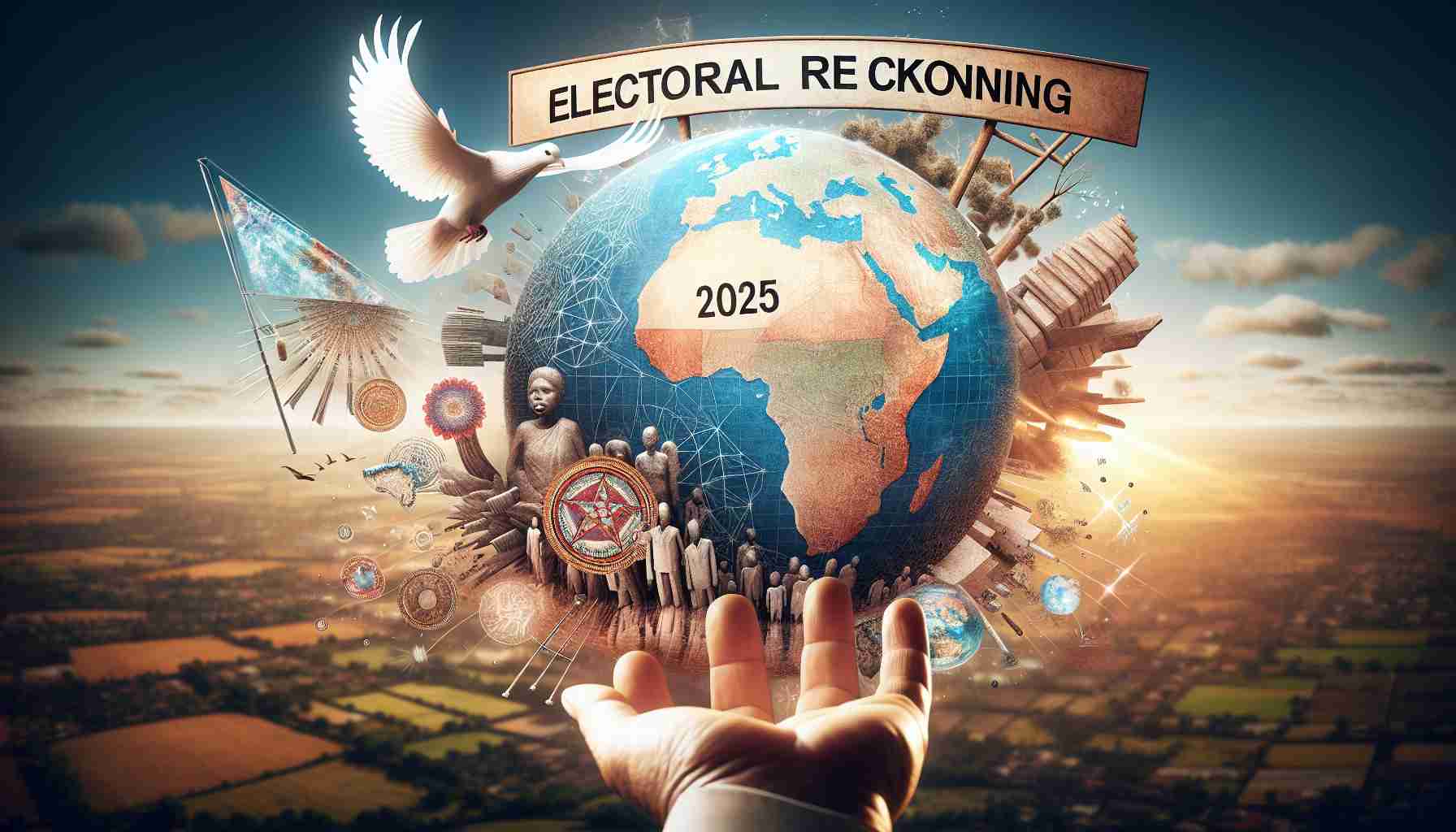Analyzing Africa’s Political Landscape Post-Elections
The year 2024 has been dubbed the “super electoral year” for Africa, teeming with a remarkable 18 national elections across the continent. As the dust settles from these pivotal events, 2025 promises a period of reflection on their political and economic ramifications. This landscape reveals a mix of political continuity and democratic uncertainty, raising critical questions about Africa’s future.
Experts in African affairs have flagged the outcomes of these elections as a significant indicator of regional stability. Some nations experienced predictable results in established autocracies, while others, like Ghana and South Africa, witnessed a robust democratic engagement, showcasing the true spirit of competition.
In Ghana, known for its strong democratic traditions, the elections were vibrant, reflecting the will of the populace. Conversely, other regions are grappling with the implications of electoral outcomes that could either bolster or hinder their democratic processes.
As we delve deeper into these developments, the analysis from seasoned journalists reveals the multifaceted nature of these polls. Observers are keenly assessing how these political dynamics will shape governance and economic growth, as they could either enhance stability or trigger unrest in certain areas.
The future of Africa hangs delicately in the balance as 2025 unfolds, leaving many to wonder what lessons will be learned from this electoral season.
What’s Next for Africa After the 2024 Electoral Wave?
Analyzing Africa’s Political Landscape Post-Elections
As Africa navigates the aftermath of its “super electoral year,” with a staggering 18 national elections in 2024, the political landscape is more dynamic than ever. The implications of these elections are likely to resonate well into 2025, shaping both political and economic trajectories across the continent.
Key Trends in African Politics
1. Democratic Engagement vs. Autocracy:
– Countries like Ghana and South Africa have reflected robust democratic engagement, showcasing a commitment to participatory governance. In contrast, nations with entrenched autocracies demonstrated expected outcomes, raising concerns about the future of democracy in those regions.
2. Economic Implications:
– The elections have significant implications for economic stability and growth. Democratic outcomes are often associated with enhanced investor confidence, while contentious or autocratic results may deter foreign investment and economic collaboration.
3. Regional Security Concerns:
– The electoral results may also influence regional security dynamics. Countries facing internal strife or weak governance could see exacerbated tensions, while others may achieve greater stability, facilitating cooperation against common threats such as terrorism.
Pros and Cons of Recent Elections
Pros:
– Increased Voter Participation: Higher voter turnout in democratic nations indicates a growing interest in governance among citizens.
– Potential for Reforms: New leadership could pave the way for reforms in governance, economic policy, and social issues, fostering progress.
Cons:
– Risk of Political Instability: In nations where elections were contentious, the potential for unrest remains high, which could disrupt economic activities.
– Long-term Autocracy Challenges: Established regimes resistant to change may hinder democracy’s progress in the region, posing challenges for civil society development.
Use Cases for Political Engagement
– Youth Activism: The rise of youth-led movements in several African countries reflects a demand for accountability and transparency in governance, which could reshape political dialogues.
– NGO Influence: Non-governmental organizations are playing pivotal roles in monitoring elections and advocating for democratic practices, contributing to more transparent electoral processes.
Limitations of Existing Political Structures
– Institutional Weakness: Many African nations struggle with weak institutions that can undermine electoral integrity and democratic accountability.
– Media Freedom: Press restrictions remain a significant concern, limiting the dissemination of unbiased information and hindering informed citizen participation.
Future Predictions and Insights
– Continued Political Uncertainty: As 2025 approaches, analysts expect varying degrees of political stability, with some nations moving toward stronger democratic frameworks while others may slide into deeper autocracy.
– Focus on Economic Recovery: The need for economic recovery will dominate political agendas, as governments strive to rebuild post-election momentum while addressing pressing challenges such as poverty and unemployment.
Conclusion
The 2024 electoral outcomes across Africa set the stage for a transformative period that is likely to influence governance, economic conditions, and the broader sociopolitical landscape for years to come. The interplay of established traditions and emerging challenges demands close observation as the continent strives for stability and growth. As experts call for adaptive governance strategies, the ongoing commitment to democracy will be crucial in shaping Africa’s future.
For more insights on African political developments, visit Africa Political Insights.
